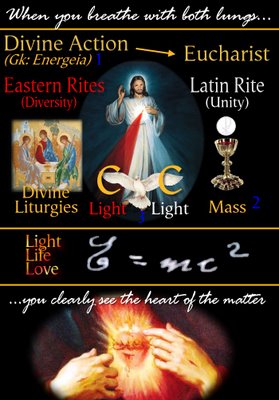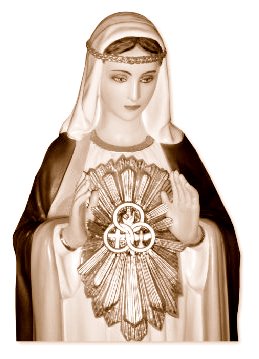J.M.J. + O.B.T. + M.G.R.*
Einstein's Religious Awakening
William Berkson
Young Albert received his first
exposure to religion in a local Munich Catholic elementary school. It seemed an
appropriate choice to his proudly secular parents, Hermann and Pauline, who had
rejected the Jewish rituals of their ancestors as outdated superstitions-that
is, until their son seemed rather too influenced by Catholic religious
instruction.
A distant relative was then hired to
tutor Albert in Judaism-again, to a far stronger effect than anticipated. He
became fervently religious and started keeping kosher.
This stage ended abruptly at age 12,
when a poor Jewish medical student, Max Talmud (later Dr. Max Talmey), whom his
parents hosted for weekly dinners, gave popular science books to the boy which
introduced him to the Positivist critique of religion (the notion that the only
authentic, "positive" knowledge is that which can be verified by
observation and experiment). The books characterized Judaism and Christianity
as belief systems operating largely on fear of God's punishment. Young Einstein
suddenly saw a punishing God as a dishonest trick played on children to scare
them into obedience. He also came to believe that the miracles in the Bible
conflicted with scientific knowledge and therefore could not be true. It was,
he later wrote, a "shattering experience," which led him to distrust
all religious authority, as symbolized by his refusing to have a bar mitzvah.
Instead, he turned to scientific inquiry "to free myself from the
chains of the 'merely-personal,' from an existence which is dominated by
wishes, hopes, and primitive feelings. Out yonder there was this huge world,
which exists independently of human beings and stands before us like a great,
eternal riddle….The contemplation of this world beckoned like a liberation, and
I soon noticed that many a man whom I had learned to esteem and to admire had
found inner freedom and security in devoted occupation with it" (Albert
Einstein: Philosopher Scientist).
One such man he grew to admire was
the 17th-century Dutch Jewish philosopher Baruch Spinoza. A man of the Age of
Reason, Spinoza asserted that everything of importance could be proven,
including truths concerning the existence of God (who, he believed, was
identical to Nature), human psychology, and ethics. Spinoza openly rejected the
divinity and literal truth of the Bible. While in his time Spinoza was regarded
by most Christians and Jews as an "infamous atheist," centuries later
the romantic poet Novalis called him a "God intoxicated man." Einstein
identified so strongly with Spinoza, he wrote what may be the only poem in
praise of Spinoza-"To Spinoza's Ethic." The first verse reads: How
I love that noble man / More than I can say with words. / Though I'm afraid
he'll have to stay all alone / Him with his shining halo.
Einstein's own views caused storms
of protest reminiscent of those surrounding his hero: Was the scientist a
religious believer or a confirmed atheist? Einstein endeavored to find a
congenial point between the polar opposites of Positivism and traditional
religion. Whereas Spinoza's spirituality was grounded in what was knowable,
Einstein's was inspired by the mystery and wonder of what he did not know-the
reality beyond human understanding. As he wrote at the age of 50 in his "credo"
Mein Weltbilt, "My World View" (1930):
The most beautiful experience we can
have is the mysterious. It is the fundamental emotion which stands at the
cradle of true art and true science. Whoever does not know it and can no longer
wonder, no longer marvel, is as good as dead, and his eyes are dimmed….A
knowledge of the existence of something we cannot penetrate, our perceptions of
the profoundest reason and the most radiant beauty, which only in their most
primitive forms are accessible to our minds-it is this knowledge and this
emotion that constitute true religiosity; in this sense, and this alone, I am a
deeply religious man (Ideas and Opinions).
In a sense, Einstein's approach to
God reflected the classic talmudic notion of yirat shamayim, "awe
of heaven." While most of us may feel awe when gazing at a grand vista, or
a star-filled sky on a clear dark night, Einstein's awe extended beyond what he
could see to the awesome power behind it. While traditional Jews studied the
books of the Torah, Einstein studied the book of nature, sustained by the
experience of "cosmic religious feeling" emanating from the natural
world.
Einstein believed that a religious
outlook was essential to living a good life: "The man who regards his own
life and that of his fellow creatures as meaningless is not merely unhappy, but
hardly fit for life" (Ideas and Opinions). Although he rejected the
notion of "a God who rewards and punishes his creatures or has a will of
the kind that we experience in ourselves," he stated that belief in a
personal God is "preferable to the lack of any transcendental outlook on
life."
Still, some religious leaders
dismissed Einstein as an atheist. How, they asked, does his notion of
"cosmic religious feeling" translate to moral action, to the observance
of ethical commandments? "Who would lay his life down for the Milky
Way?" chided the American Catholic leader Fulton J. Sheen (later to become
bishop and one of the first popular television personalities). Sheen quipped
that the "s" should be removed from Einstein's "cosmical
religion" (Einstein and Religion by Max Jammer).
Einstein did eventually change his
position on the relationship between religion and ethics. In 1930, influenced
by both Positivistic thinking on the separation of ethics and religion and
academic Western philosophy, he argued that a person with cosmic religious
feeling "has no use for the religion of fear and equally little for social
or moral religion.…A man's ethical behavior should be based effectually on
sympathy, education, and social ties and needs; no religious basis is
necessary." In a similar vein, Einstein declared, "There is nothing
divine about morality; it is a purely human affair." But nine years later,
Einstein rejected the Positivist conception of ethics: "Scientific method
can teach us nothing beyond how facts are related to and conditioned by each
other.…One can have the clearest and most complete knowledge of what is
and yet not be able to deduce from that what should be the goal of our
human aspirations.…Intelligence makes clear to us the interrelation of means
and ends. But mere thinking cannot give us a sense of ultimate and fundamental
ends. [This is] precisely the most important function which religion has to
perform in the social life of man.…The highest principles…are given to us in
the Jewish-Christian religious tradition" (Ideas and Opinions).
Einstein also came to regard
religious values as a bulwark holding back humanity from a descent into
barbarism. Most likely, the ascent of Nazism influenced his change of
heart-just as the rising tide of antisemitism in Germany and in the Arab world
led him to fervently support the creation of a Jewish state in Palestine.
A hero to the Jewish people because
of his celebrity status as a scientist, Einstein was offered many honors,
including the presidency of Hebrew University, Brandeis University, and even
(in 1952) the State of Israel. He declined all. In a letter expressing his
regrets for not accepting Israel's presidency, Einstein described himself as
being "unsuited to fulfill the duties of that high office." He
concluded with the affirmation: "My relationship to the Jewish people has
become my strongest human bond, ever since I became fully aware of our
precarious situation in the world."
Later in Einstein's life, his
scientific explorations reflected his religious thinking, particularly in his
quest for a Unified Field Theory that would encompass matter, gravity (which
his general theory of relativity covers), and electromagnetism. This pursuit,
explained Jewish philosopher and historian of science Émil Meyerson, was
similar to the sense of wonder a scientist experiences in discovering
underlying unity in nature: that the same atoms underlie living and inanimate
matter, and that living creatures which appear very different share the same
basic DNA (even if it is structured differently).
Just as the kabbalists believe that
"all is one" and the Shema prayer affirms that a fundamental
force unites all things ( Hear, O Israel! The Lord is our God, the Lord is
One, Deuteronomy 6:7), Einstein, to his dying day, sought to discover a
unifying principle of the universe.
Einstein was under no illusion that
he had come close to a solution, but his awe of nature and its order, as well
as his endeavors to understand its great mysteries, never waned.
William Berkson is director of the Jewish Institute for Youth and Family;
author of Fields of Force: The Development of
a World View from Faraday to Einstein (Routledge 1974) as well as Pirkei
Avot: Timeless Wisdom for Modern Life (Jewish Publication Society, 2010);
and a member of Temple Rodef Shalom in Falls Church, Virginia.
Sincerely yours in Jesus through Mary,
Mike Rizzio
Imitate Mary
Become like Jesus
Live for the Triune God
Seek the Light of Our Lord Jesus Christ
See you on the High Ground!
* - J.M.J. + O.B.T. + M.G.R. stands for:
Jesus, Mary and Joseph;
O Beata Trinitas;
St. Michael, St. Gabriel and St. Raphael





























No comments:
Post a Comment